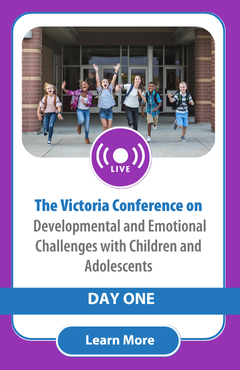Description
This workshop will be live streaming to online participants on February 6, 2026 from 8:30am – 4:00pm (Vancouver, BC)
Please adjust your start time according to your specific time zone.
Recorded footage and all course content (certificate, videos, quiz) will be available until March 10, 2026. Extensions cannot be granted under any circumstances.
Please allow 5 – 7 business days after the course airs for recorded footage to become available.
This webinar presents information on attachment and wellbeing. We begin with research on Adverse Childhood Experiences (ACEs) studies to highlight the interaction between early adversity and epigenetic effects expressed later in life that significantly impact mental health. The rapidly evolving new research from related fields reveals how gene-environment, metabolism, and immune system interactions effect mental health. For example, maternal neglect and growing up in poverty have been shown to suppress genes regulating the cortisol receptors on the hippocampus, making it more difficult to turn off the HPA axis later in life. In the extreme, low cortisol receptors are associated with suicide.
Therapy with children, adolescents, and adults requires engagement of attachment dynamics and care for their developing brain, and all systems that regulate their body. Therapy to promote resilience taps into the attachment process throughout the life cycle. It requires a mind, body, and brain changing process that transforms dysregulation to the re-regulation of mood, cognition, and resilient behaviors.
John Arden, PhD, ABPP is the author of 15 books, including his most recent, Mind-Brain-Gene: Toward Psychotherapy Integration. His other books include: Brain2Brain, The Brain Bible, as well as Rewire Your Brain 2.0, and Brain-Based Therapy with Adults and Brain-Based Therapy with Children and Adolescents. He previously served as Director of Training in Mental Health for Kaiser Permanente in the Northern California region where now over 300 postdoctoral residents and interns are trained each year in 24 medical centers. He has presented seminars in over 30 countries and in all US States.
| Registration | Early bird Fee | Regular Fee |
|---|
| Individual Enrollment | $244.00 | N/A |
| Group 3 - 7 | $183.00 | N/A |
| Group 8 - 15 | $122.00 | N/A |
| Group 15+ | $97.60 | N/A |
| Full-Time Student | $97.60 | N/A |
All fees are in Canadian dollars ($CAD) and per person.
How to Purchase a Group Rate
-
Add Seats to Your Cart
Select the total number of seats you need for your group and add them to your cart. Each seat represents one participant who will be enrolled in the course.
-
Complete Your Purchase
Proceed to checkout and complete the payment for the total number of seats needed for your group.
-
Contact Our Office
Once your purchase is complete, please contact our office at webinars@jackhirose.com with your order number.
-
Receive Group Enrollment Link
We will send you a unique link that you can distribute to group members. Group members will be required to use this link to complete receiving access to the course.
If you have any questions or need assistance, don’t hesitate to reach out.
Fees are per person, seat sharing is not allowed. Please respect this policy, failure to comply will result in termination of access without a refund. For group rates please contact webinars@jackhirose.com





